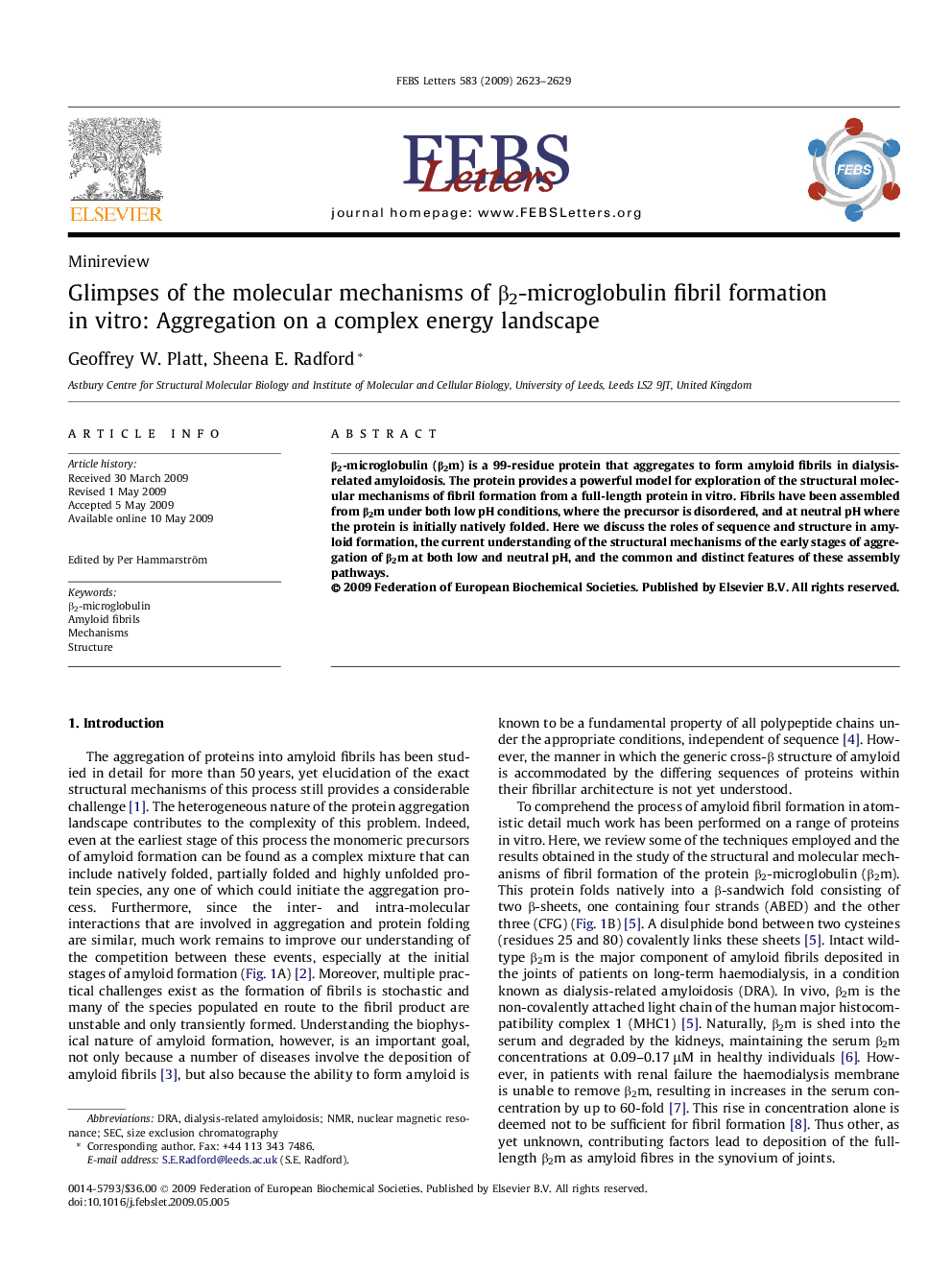| Article ID | Journal | Published Year | Pages | File Type |
|---|---|---|---|---|
| 10872477 | FEBS Letters | 2009 | 7 Pages |
Abstract
β2-microglobulin (β2m) is a 99-residue protein that aggregates to form amyloid fibrils in dialysis-related amyloidosis. The protein provides a powerful model for exploration of the structural molecular mechanisms of fibril formation from a full-length protein in vitro. Fibrils have been assembled from β2m under both low pH conditions, where the precursor is disordered, and at neutral pH where the protein is initially natively folded. Here we discuss the roles of sequence and structure in amyloid formation, the current understanding of the structural mechanisms of the early stages of aggregation of β2m at both low and neutral pH, and the common and distinct features of these assembly pathways.
Keywords
Related Topics
Life Sciences
Agricultural and Biological Sciences
Plant Science
Authors
Geoffrey W. Platt, Sheena E. Radford,
